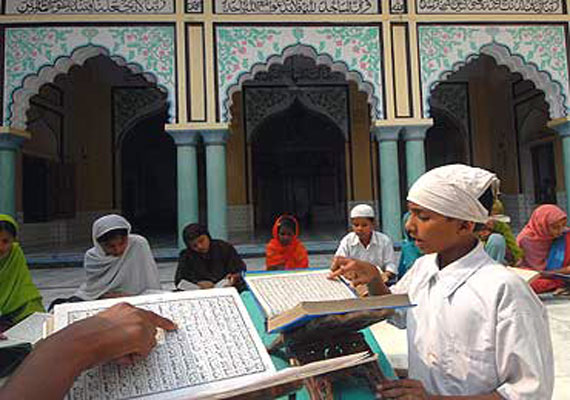
Sabir Shah, a student of a religious school in Lahore, said that he was sexually abused by Mufti Aziz ur Rehman for more than a year.
Religious leaders who are a major influence in Pakistan’s society and are often found seeking public executions to paralyze the country or punishment for those convicted of insulting Islam, this time found themselves inside a madrasa rocks. Child sexual abuse is found to be in a sticky position as the phenomenon. Nation.
Sabir Shah, a student of a religious school in Lahore, said that Mufti Aziz ur Rehman sexually abused her for more than a year. Shortly thereafter, a video surfaced and went viral on the internet, in which another child complained of sexual abuse involving a Shia cleric.
Religious uproar over issues related to blasphemy or any action that would be considered a deliberate attempt to ridicule Islam, often paralyzed Pakistan with violent protests by hundreds of thousands of followers of religious leaders to clear and open threats to the government is. To fulfill their demands of capital punishment to such criminals.
Prime Minister Imran Khan’s recent statement regarding less clothing on women would have an “impact on sexual desire for men”, supported by many religious leaders and scholars, who said Pakistani society is based on Islamic values, which allow women. does not give. To wear less clothes in public.
Whereas religious schools and their leadership have shown their clear public strength on such issues; Recently a case of sexual abuse of a young boy from a religious school pointed fingers at the status of religious schools and religious leaders in the country.
The recent incidents cannot be treated as isolated incidents, as a nine-year-old boy was raped by a cleric in Pakistan’s Punjab province in 2017. In 2018, another cleric was arrested for raping a minor. In 2019, a 13-year-old disabled girl was sexually assaulted by a cleric in the city of Multan in Punjab province. The list of such cases continues and grows with every passing year, prompting calls for and demands for accountability.
People are blaming religious institutions and clerics for using religious institutions for their vicious sexual desires, a claim vehemently rejected by clerics who refuse to believe that their educational institutions or clerics are at fault. According to estimates, more than 2.2 million children are enrolled in over 36,000 madrassas in Pakistan, mostly from poor areas.
Experts say that many cases of child abuse by clerics in madrassas occur because the clerics knew that the child’s claim was less likely to be believed. Clinical psychologist Dr. Naila Aziz said, “Some clerics target vulnerable children because they know they are very unlikely to believe claims of child sexual abuse. inspires.” “It motivates and encourages clerics to do what they do without any punishment,” she said.
It is also a bitter truth that when it comes to accountability, the powerful political position of religious organizations and their clerics prevents them from going through the accountability process as per the law of the land.
“They (religious clerics) teach courses of their choice, collect funds and use them in their own way. Whenever a case is registered and a process of accountability is initiated against these clerics, they stop it. to use their power and intimidation,” said Nasreen Jalil, former chair of the Senate Committee on Human Rights.
“This lack of accountability has encouraged them to commit crimes against children as well,” he said. The other power tool these clerics possess is a charge of blasphemy against a person who will try to probe such claims of sexual abuse in depth. Mumtaz Gohar, national coordinator of the child rights movement in Pakistan, said: “If any group tries to investigate the matter, the cleric can use his powerful position to accuse him of blasphemy or being a foreign agent.”
On the other hand, religious parties, clerics and their institutions allege that such claims of sexual abuse of children are largely targeted by secular organizations to defame religious practices. “Religious madrasas have their own system of accountability, which does not tolerate such crimes. All clerics and religious parties have condemned such acts and demanded that those responsible should be brought to justice. .
“Despite all this, some elements are maligning the image of the madrassas,” said Mohammad Nazir Farooqui of Islamabad’s Maroof-ul-Quran madrassa.
The matter remains a critically sensitive issue for debate in Pakistan because of the power of these religious madrassas on the streets, the mass following of senior clerics, the political power of these clerics, which makes them a force to be reckoned with in every political party that wishes to visit them. makes it desirable. In power, is massive. Any claim against the cleric is considered an attack on religion, and accounts for and investigates child abuse claims on very weak grounds.
.